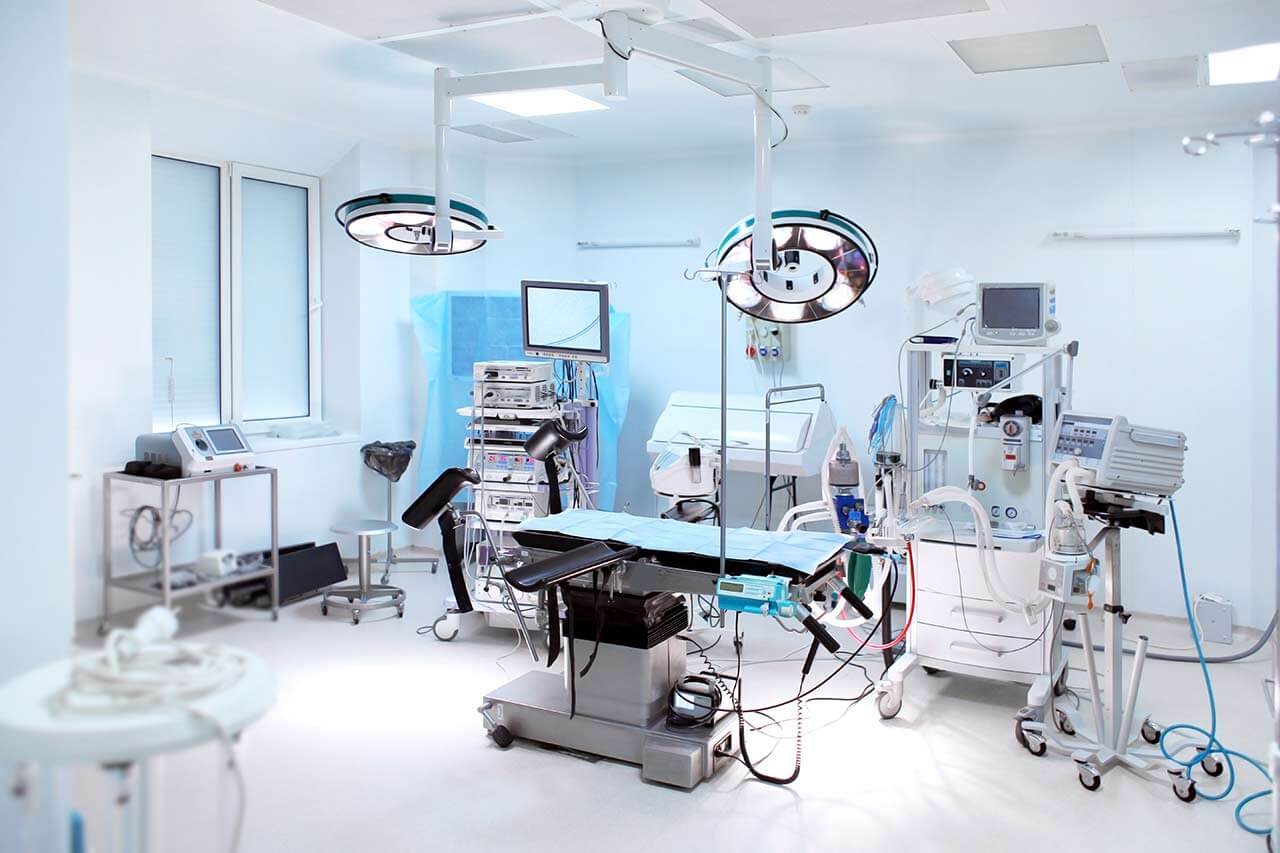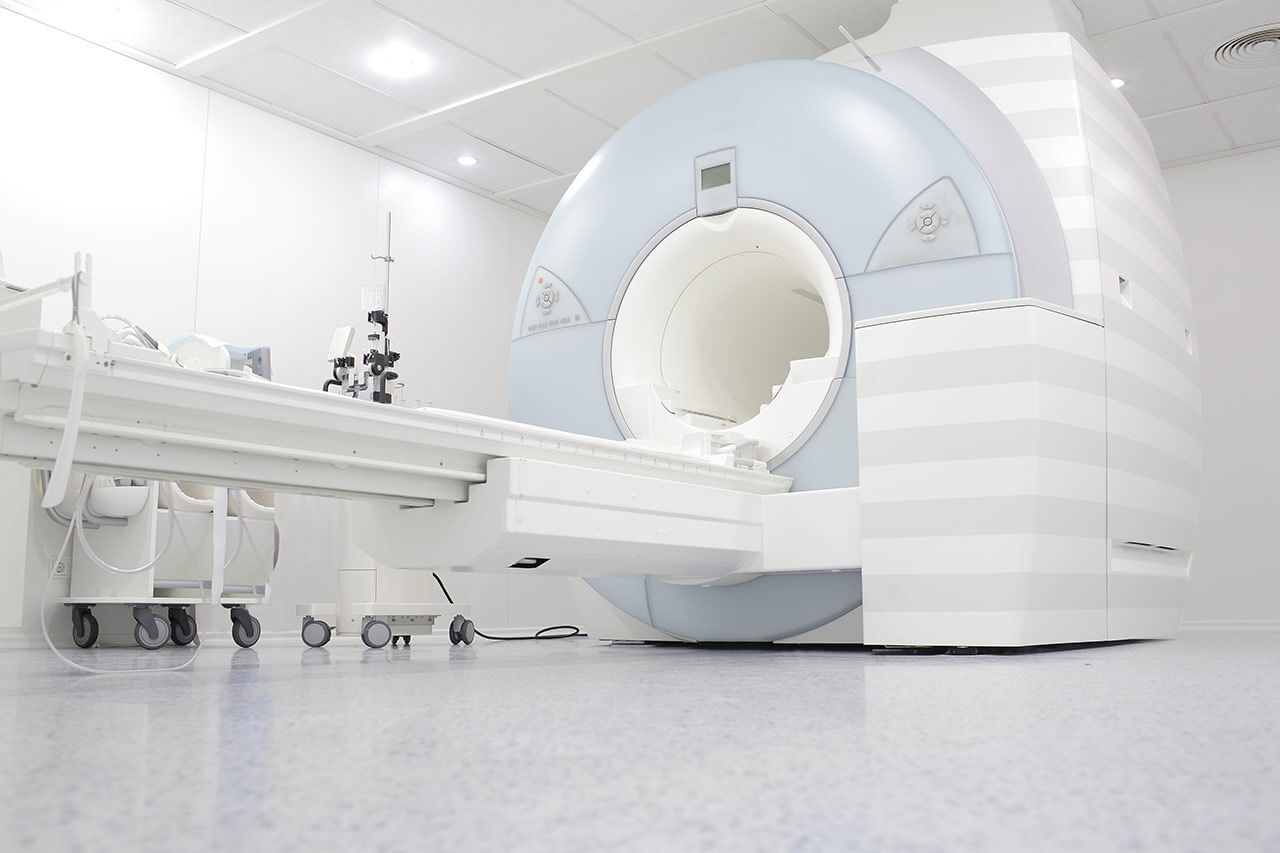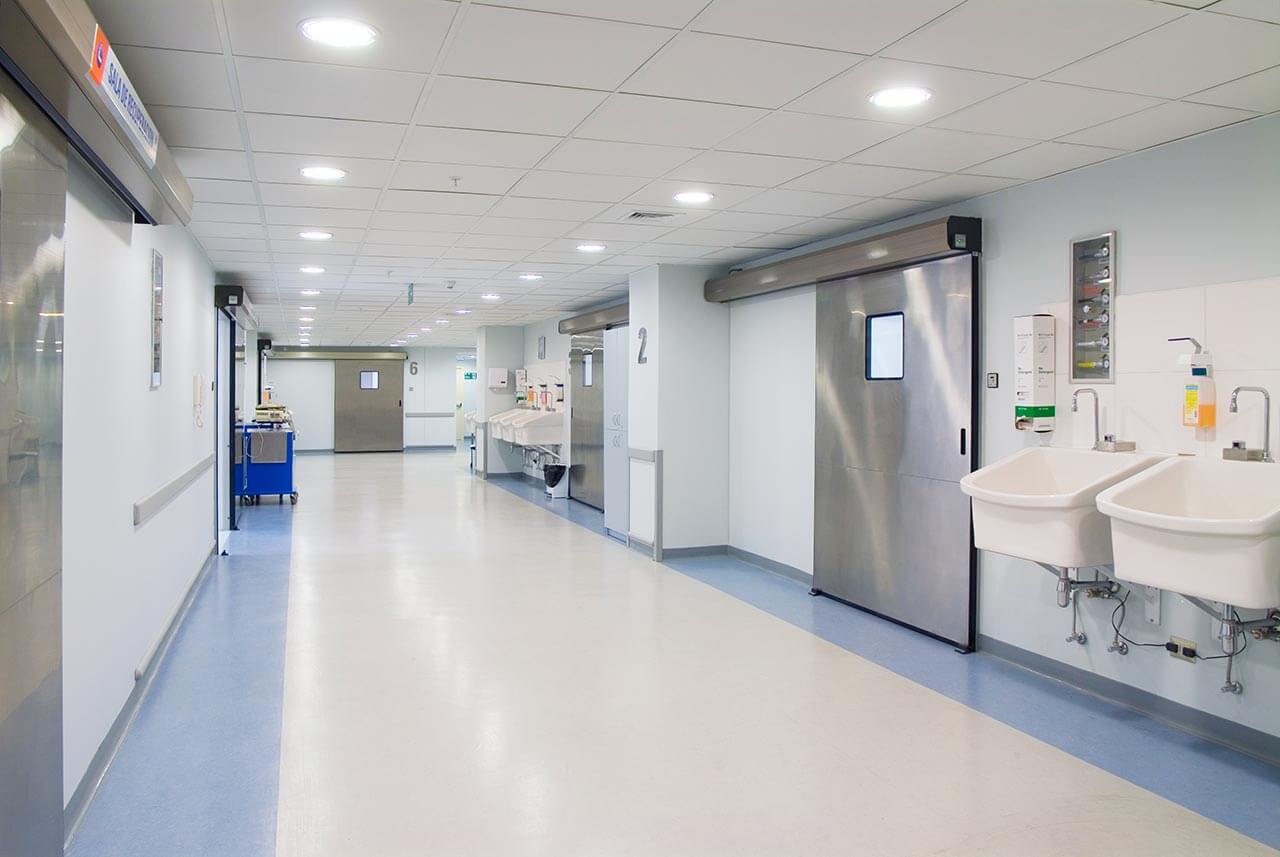
The program includes:
- Initial presentation in the clinic
- clinical history taking
- review of medical records
- physical examination
- laboratory tests:
- complete blood count
- biochemical analysis of blood
- inflammation indicators (CRP, ESR)
- immune status (IgE)
- differential diagnosis of other diseases of the skin
- skin scratch/prick tests
- consultation of related specialists
- symptomatic specific treatment
- the cost of essential medicines and materials
- nursing services
- control examinations
- full hospital accommodation
- developing of further guidance
Required documents
- Medical records
- Photo of the affected body regions
Service
You may also book:
 BookingHealth Price from:
BookingHealth Price from:
About the department
The Department of Dermatology at the University Hospital Halle (Saale) specializes in the diagnosis and treatment of the entire spectrum of diseases of the skin and its appendages. The department provides qualified medical care for patients with benign and malignant skin tumors, infections, including particularly complex ones (for example, erysipelas and shingles), chronic inflammatory skin lesions, autoimmune dermatoses, vasculitis, vasculopathy, and allergic manifestations on the skin. Since 2015, the Skin Cancer Center (certified by the German Cancer Society, DKG) has been operating on the basis of the department as part of the Cancer Center Halle. The treatment of oncological skin diseases is one of the key areas of clinical practice of the department. The team of dermatologists of the department is competent in both conservative and surgical treatment. Surgical procedures are performed using modern microsurgical techniques, and the department also successfully uses innovative laser techniques to treat skin pathologies. The patients' health is in the safe hands of competent doctors with many years of clinical experience and high professional skills. The department is headed by Prof. Dr. med. Cord Sunderkötter.
One of the most important areas of the daily work of the department's dermatology team is the treatment of skin malignancies such as squamous cell carcinoma, basal cell carcinoma, and melanoma. Patients with skin cancer receive comprehensive medical care in a specialized center certified in accordance with the requirements of the German Cancer Society (DKG). The first stage of the therapeutic process is a diagnosis, which may include dermatoscopy, videodermatoscopy, high-frequency sonography, and biopsy with histologic examination. With the diagnostic results in hand, dermatologists, together with oncologists and other specialists, study the diagnostic data and develop an individual treatment regimen for the patient. Surgery to remove the tumor is an integral part of the treatment process. Small neoplasms are often removed by cryodestruction. In other cases, surgical resection, Mohs micrographic surgery, is required. The essence of the operation is the gradual removal of the tumor with obligatory histological control of each manipulation. The operation is performed under local anesthesia, often on an outpatient basis. The Mohs technique is highly effective: the success rate in the treatment of primary skin malignancies reaches 99%, and in the case of recurrence – 95%. At the same time, the high level of expertise of the dermatosurgery specialists in the department allows for a good therapeutic and aesthetic result. Patients with advanced stages of cancer also receive chemotherapy and/or radiation therapy.
The department offers treatment for a wide range of benign skin diseases with a special emphasis on infectious lesions, chronic inflammatory diseases, and autoimmune dermatoses. The department has gained unique experience in the treatment of infectious skin lesions and their complications such as scabies, warts, herpes, lichen, fungal diseases, etc. To suppress the infectious process, the specialists of the department use drug therapy. Depending on the specific clinical case, the patient may be prescribed antiviral drugs, immunostimulants, antibiotics, antihistamines. Dermatologists also perform local treatment with ointments, gels, and creams.
Physicians in the department see patients with chronic autoimmune and inflammatory skin diseases on an almost daily basis, the most common of which are eczema, atopic dermatitis, acne, and urticaria. These conditions cause redness, dryness, and scaling of the skin, itching and burning, swelling, fever, and other symptoms. The diagnostic protocol for suspected inflammatory skin disease includes a clinical examination, laboratory tests, allergy testing, skin biopsy with histology, and dermatoscopy. Treatment tactics are determined individually for each patient. The task of the department's specialists is to relieve symptoms, eliminate the cause of inflammation, and restore damaged skin. Dermatologists use topical medications (creams and ointments with corticosteroids, immunomodulators, and antibiotics), oral antihistamines and antibiotics, and skin moisturizers.
The therapeutic offer of the department is completed by the treatment of varicose veins. It should be noted that the department has many years of experience in this field. The medical facility has the status of a certified Competence Center for Venous Diseases. The department has a modern diagnostic base for performing Doppler ultrasound, duplex sonography, phlebography, magnetic resonance angiography, and laboratory tests. As for the treatment, the department successfully performs stripping (minimally invasive surgery), radiofrequency obliteration (a non-surgical method of removing varicose veins using high-frequency electromagnetic radiation), and foam sclerotherapy (injection of a sclerosing agent into a vein affected by varicose veins).
The department's main clinical focuses include the following:
- Diagnostics and treatment of malignant skin tumors: squamous cell carcinoma, basal cell carcinoma, and melanoma
- Diagnostics and treatment of benign skin tumors: warts, moles, nevi, papillomas, lipomas, angiomas, and adenomas
- Diagnostics and treatment of infectious skin diseases and their complications: scabies, warts, herpes, lichen, fungal diseases, erysipelas, and shingles
- Diagnostics and treatment of chronic autoimmune and inflammatory skin diseases: eczema, atopic dermatitis, acne, and urticaria
- Diagnostics and treatment of autoimmune dermatoses: bullous dermatoses, vitiligo, psoriasis, skin lesions in systemic lupus erythematosus, scleroderma, and dermatomyositis
- Diagnostics and treatment of allergic skin diseases: urticaria, angioedema, contact and atopic dermatitis, and eczema
- Diagnostics and treatment of acne inversa
- Diagnostics and treatment of venous diseases: varicose veins and venous trophic ulcers
- Diagnostics and treatment of sexually transmitted diseases
- Diagnosis and treatment of other diseases
The range of therapeutic options offered by the department includes the following:
- Conservative treatment methods
- Drug therapy: oral therapy, injection therapy, and local treatment with ointments, gels, and creams
- Laser therapy
- Cryodestruction
- Photodynamic therapy
- Radiofrequency obliteration and foam sclerotherapy for varicose veins
- Surgical treatment methods
- Mohs micrographic surgery
- Flap plastic surgery (advancement flap plastic surgery, rotation flap plastic surgery, and transposition flap plastic surgery)
- Plastic surgery to restore skin defects
- Radical lymphadenectomy
- Radical skin excisions for acne and surgery for pilonidal sinus
- Necrectomy and wound debridement
- Resection and debridement of abscesses and furuncles
- Removal of superficial layers of the skin (curettage and dermabrasion)
- Stripping for varicose veins
- Subcutaneous curettage and removal of sweat glands in hyperhidrosis
- Other treatment methods
Curriculum vitae
Since 1 February 2017, Prof. Dr. med. Cord Sunderkötter has been Head of the Department of Dermatology at the University Hospital Halle (Saale). He studied medicine at the University of Muenster and received his doctorate in 1988. After completing his medical training, Prof. Sunderkötter worked as a Research Fellow, Assistant Physician, and Senior Physician at the University Hospital Muenster, followed by a position of Head Physician and Professor in the Department of Dermatology at the University Hospital Paderborn. From 2003 to 2006, he was Professor and Managing Senior Physician in the Department of Dermatology and Allergology at the University Hospital Ulm. From 2006 to 2016, Prof. Cord Sunderkötter worked in the Department of Dermatology at the University Hospital Muenster. During this time, he headed the Skin Cancer Center and held the position of Professor for Translational Dermatoinfectology at the Faculty of Medicine of the University of Muenster.
Prof. Sunderkötter's special clinical interests include the treatment of infectious skin diseases, malignant skin tumors, autoimmune dermatoses, vasculitis, and vasculopathies.
Photo of the doctor: (c) Universitätsklinikum Halle (Saale)
About hospital
According to the prestigious Focus magazine, the University Hospital Halle (Saale) is one of the best medical institutions in Germany!
The history of the hospital goes back more than 300 years, and during this time it has managed to gain an excellent reputation not only in Germany, but also throughout the world. The hospital positions itself as a specialized healthcare facility for the treatment of severe and rare diseases and injuries. The hospital provides medical care to patients of all ages in compliance with the latest scientific achievements. The hospital is distinguished by successful research activities, especially in the field of cardiovascular diseases and oncopathologies – the specialists in these areas have made significant contributions to the development of the very latest diagnostic methods and therapeutic approaches.
The University Hospital Halle (Saale) has 30 specialized departments representing almost all areas of modern medicine, as well as 17 narrowly focused institutes. About 35,000 patients receive qualified medical care of European standards in the hospital every year, and more than 212,000 patients are served on an outpatient basis. This number of patients is evidence of the high efficiency of medical services and the excellent image of the hospital in the international medical arena; patients from all over the world regularly seek medical attention here.
Some of the hospital's structural units deserve special attention. For example, the Central Emergency Department (the largest in Saxony-Anhalt), modern dental clinics, the Perinatal Center, and the Transplant Center, which has a history of more than 40 years. The Transplant Center performs more than 40 kidney transplants annually, most of them from living donors.
Thanks to the use of the latest medical technologies and the availability of state-of-the-art equipment, many previously high-risk surgeries and procedures can now be performed in the hospital using sparing techniques. In this context, hybrid cardiac surgery and robotic surgery using the innovative da Vinci Si® system in urology are worthy of mention.
An integral part of the successful clinical practice of the University Hospital Halle (Saale) is the availability of experienced and competent medical staff. The total number of employees at the hospital is more than 4,450. Many physicians are known far beyond the borders of Germany: they regularly conduct important research that enables the development of modern medicine. In addition, the hospital specializes in training medical students, so qualified doctors and professors are willing to pass on their experience to the younger generation.
The hospital has many quality certificates such as DIN EN ISO 9001:2015 certificate, German Cancer Society (DKG) certificate, JACIE certificate, EndoCert certificate, ClarCert certificate, German Spine Society (DWG) certificate, German Trauma Society (DGU) certificate, CERT iQ certificate, LGA InterCetert certificate, and others.
Photo: (с) depositphotos
Accommodation in hospital
Patients rooms
The patients of the University Hospital Halle (Saale) stay in comfortable single, double, and triple rooms with a modern design. All patient rooms have an ensuite bathroom with a toilet and a shower. The standard patient room includes a comfortable automatically adjustable bed, a bedside table, a wardrobe, a table and chairs for receiving visitors, a TV, a radio, and a telephone. The patient rooms have access to Wi-Fi. For safety reasons, the use of laptops and cell phones is prohibited in some areas, including the intensive care units. The hospital also offers enhanced-comfort patient rooms.
Meals and Menus
The hospital offers delicious and well-balanced meals three times a day: breakfast, lunch, and dinner. Patients and their companions can choose from three daily menus, which always include dietary dishes. If necessary, an individual menu can be prepared for the patient. Children are offered a special menu with healthy and tasty dishes, rich in nutrients necessary for a growing body.
Further details
Standard rooms include:
![]() Toilet
Toilet
![]() Shower
Shower
![]() Wi-Fi
Wi-Fi
![]() TV
TV
Religion
Religious services are available upon request.
Accompanying person
Your accompanying person may stay with you in your patient room or at the hotel of your choice during the inpatient program.
Hotel
Your accompanying person may stay with you in your patient room or at the hotel of your choice during the inpatient program.




